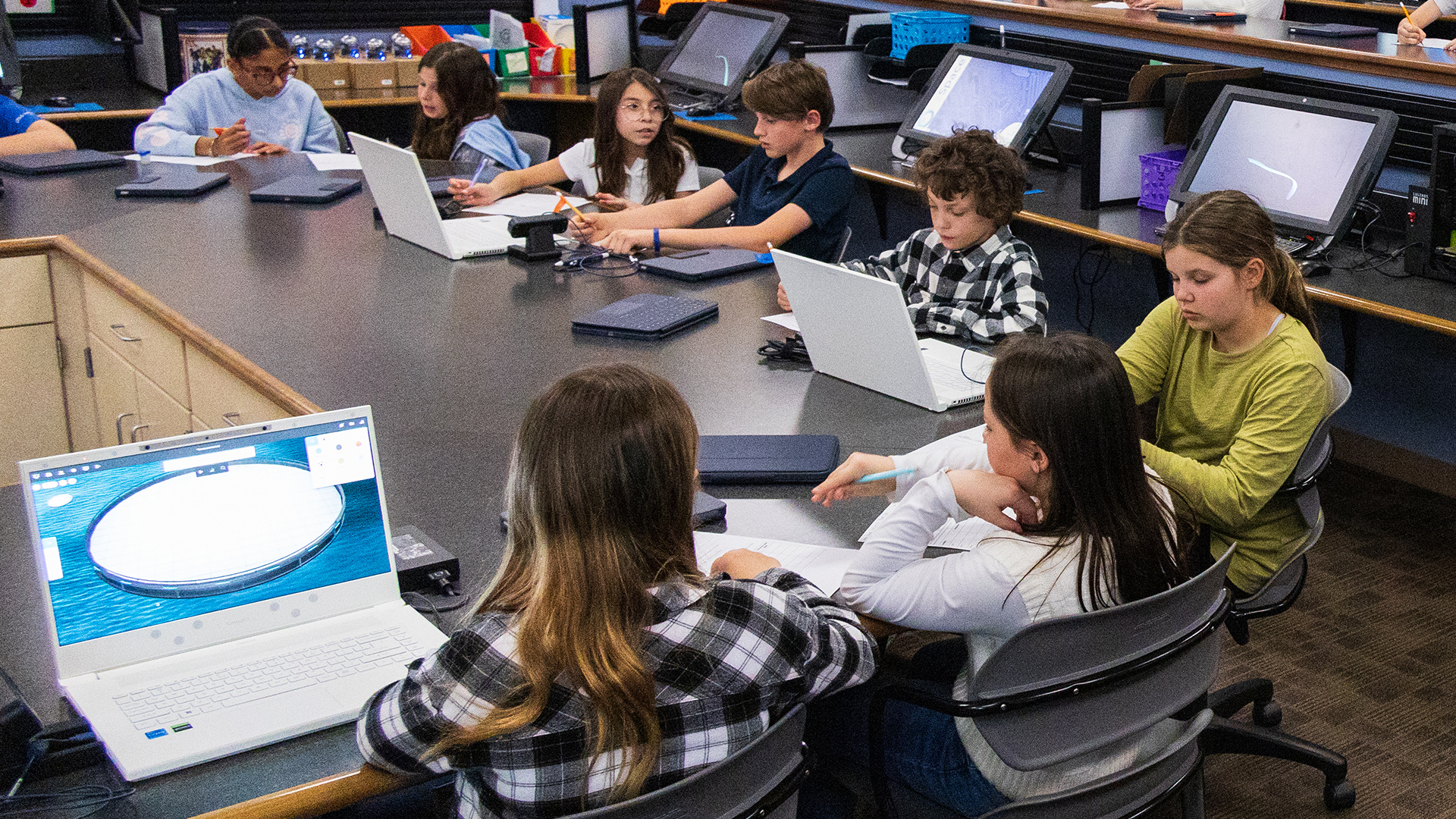
December 13, 2024
VR in Education: Transforming Learning with zSpace
Explore how VR in education, specifically through zSpace, is revolutionizing learning experiences and enhancing student achievement.
Explore how VR in education, specifically through zSpace, is revolutionizing learning experiences and enhancing student achievement.
The Role of VR in Modern Education
Virtual Reality (VR) is redefining the landscape of modern education by providing immersive learning experiences that were once unimaginable. According to the U.S. Department of Education, integrating technology into classrooms can significantly enhance learning outcomes by providing interactive and engaging ways to explore complex subjects. VR in education is particularly impactful as it allows students to enter and interact with a 3D environment, making abstract concepts tangible.
The traditional classroom setup, with its reliance on textbooks and 2D visual aids, often falls short in engaging students fully. VR addresses this gap by offering an experiential learning platform that caters to various learning styles. From virtual field trips to exploring the human anatomy in 3D, VR makes learning more dynamic and memorable.
How zSpace is Leading the VR Revolution in Schools
zSpace is at the forefront of the VR revolution in education, providing a comprehensive suite of tools designed to transform learning experiences. zSpace combines augmented and virtual reality (AR/VR) to create lifelike experiences that engage students in ways traditional methods cannot. Their technology is currently in use in thousands of schools across the United States, making them a leader in the educational VR field.
One of the key features of zSpace is its ability to offer hands-on learning experiences. For example, students can dissect a virtual frog without the mess or ethical concerns associated with real dissection. This type of interactive learning not only makes lessons more engaging but also helps students retain information more effectively.
Impact on Student Engagement and Achievement
The introduction of VR in education has shown considerable promise in increasing student engagement and achievement. A study conducted by the Stanford Graduate School of Education found that students who used VR technology in their lessons demonstrated higher levels of engagement and a deeper understanding of the material compared to those who used traditional learning methods.
zSpace's immersive environments captivate students' attention and motivate them to explore subjects more thoroughly. This heightened level of engagement often translates into better academic performance. For instance, schools that have integrated zSpace into their STEM curriculum have reported significant improvements in test scores and overall student achievement.
Enhancing Teacher Effectiveness with VR
While VR in education primarily benefits students, it also significantly enhances teacher effectiveness. zSpace provides educators with a versatile platform that can be used to teach a wide range of subjects, from science and math to history and art. Teachers can create customized lessons that align with their curriculum and learning goals, making it easier to address the diverse needs of their students.
Moreover, zSpace offers professional development resources to help teachers integrate VR technology into their classrooms effectively. This support ensures that educators are well-equipped to leverage VR's full potential, making their teaching more impactful and engaging. According to a report by the National Education Association, teachers who utilize technology effectively in their classrooms often experience higher job satisfaction and improved student outcomes.
Building Community and Board Support for VR Initiatives
Introducing VR in education requires substantial buy-in from both the community and school boards. Building this support is crucial for the successful implementation and sustainability of VR initiatives. One effective strategy is to demonstrate the tangible benefits of VR technology, such as improved student engagement and achievement.
zSpace assists schools in garnering this support by providing data and case studies that highlight the positive impact of their technology. Hosting demonstration days where board members and community stakeholders can experience VR firsthand is another effective way to showcase its potential. By involving the community and board in the adoption process, schools can build a strong foundation of support that ensures the long-term success of their VR initiatives